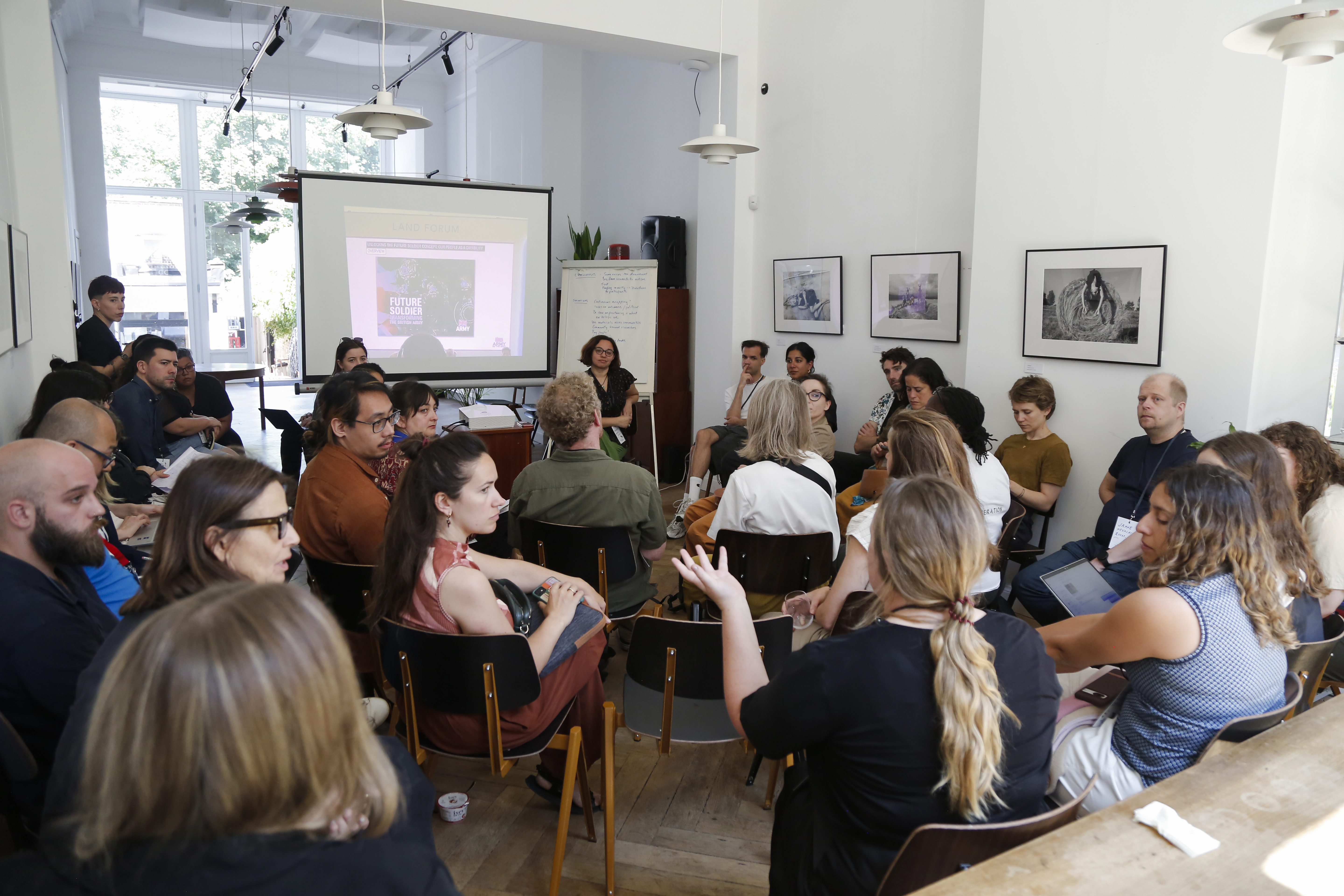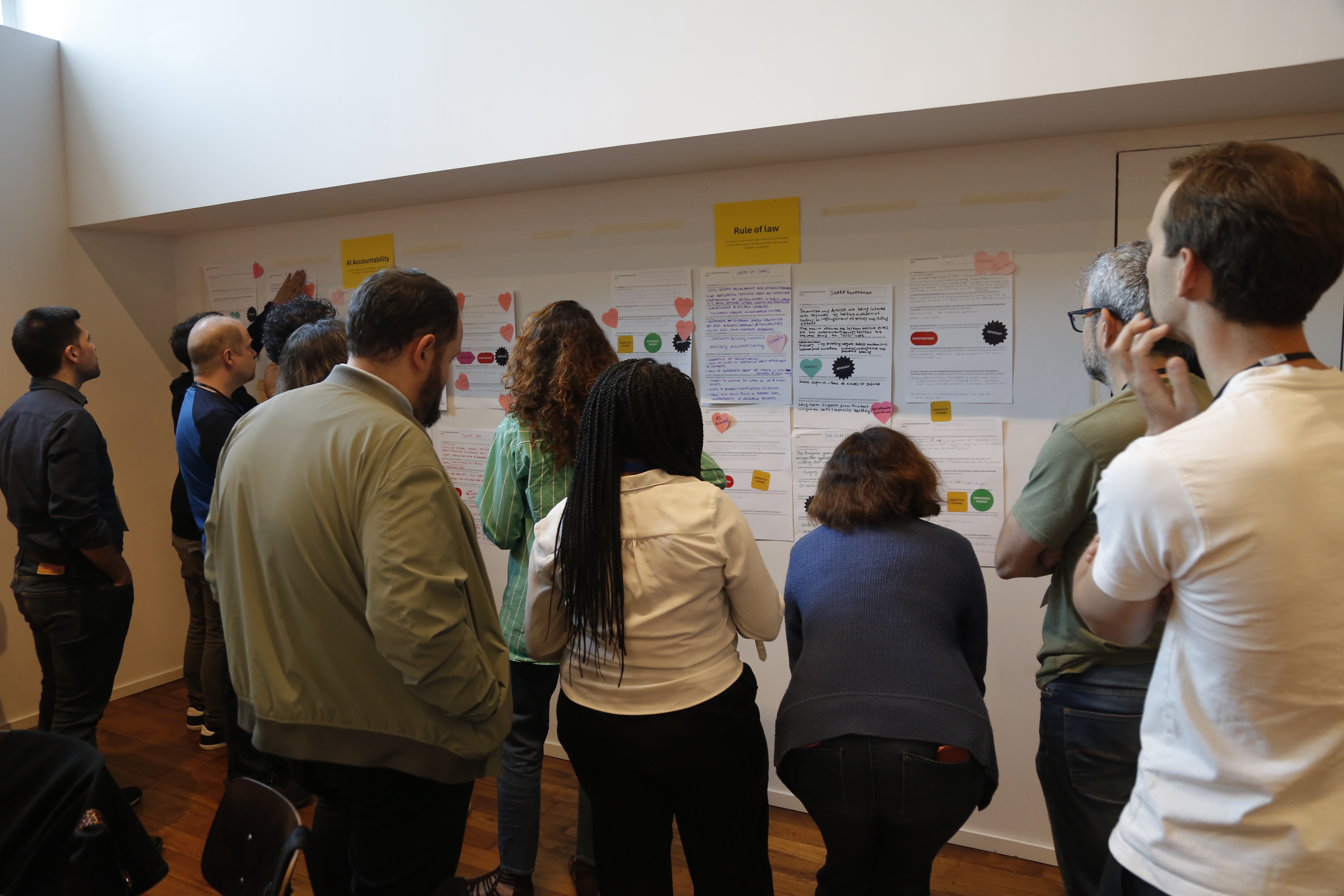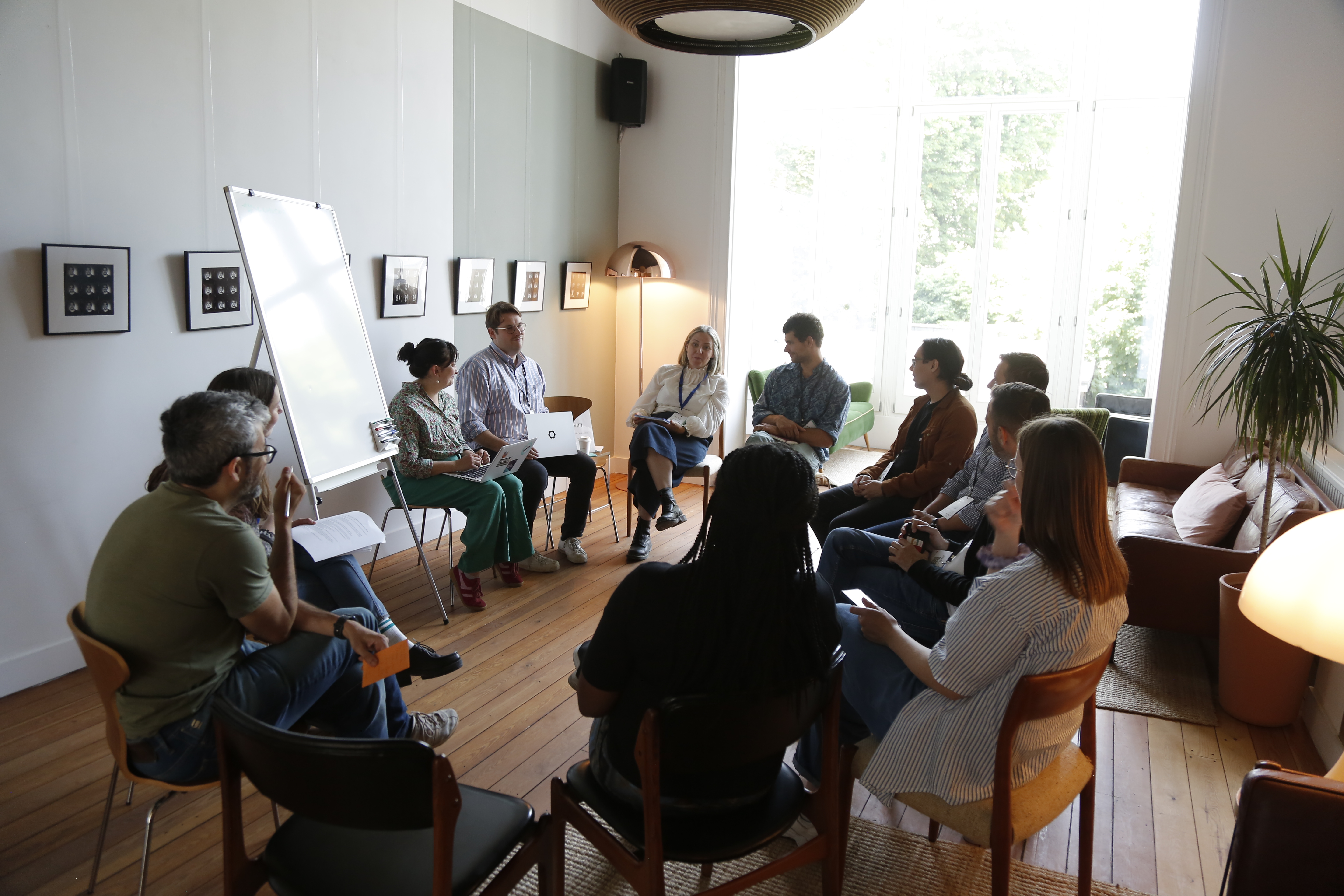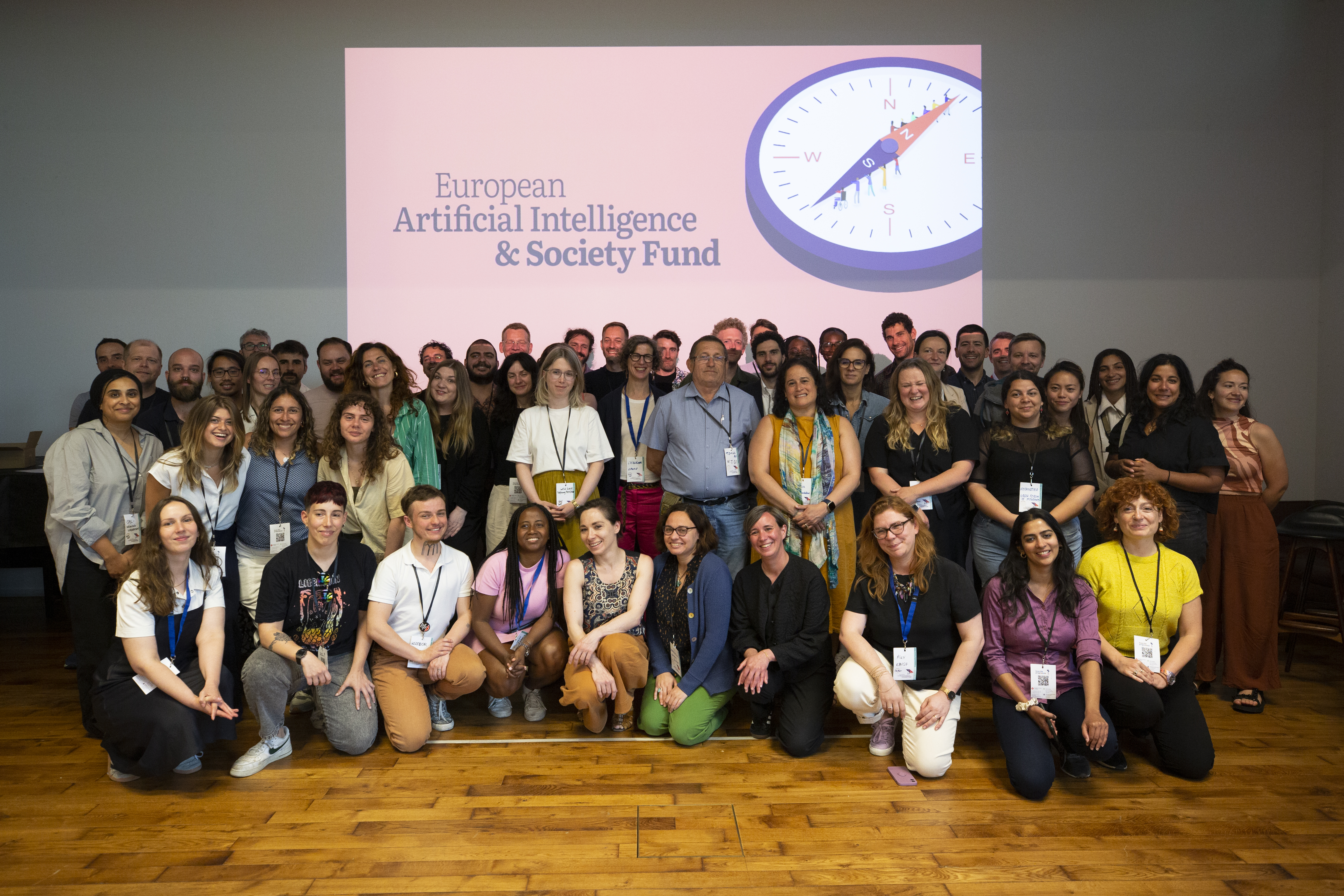Cultivating our collective strength – the European AI & Society 2025 community meeting

This June 80 people from across the European AI & Society Fund community got together in a beautifully sunny Brussels to think, learn, conspire and connect.
At our annual meeting of grantees and funders we celebrated our successes, acknowledged our difficulties and discussed tactics to achieve our collective mission to turn the tide on AI.
At a time when civil society organisations face daunting challenges it was a vital moment of solidarity across the diverse members of our network. The agenda was co-created between the European AI & Society Fund team and five representatives of grantee organisations. Here’s some of the pressing topics we discussed:
Narrative roadblocks
Across the two days, two powerful, mutually-reinforcing narratives came up as recurring barriers to pushing back against government and corporate interests around AI:
- “innovation vs regulation” – AI is being positioned as the solution to everything from providing better healthcare to streamlining business systems. AI regulation that civil society pushes for to protect fundamental rights – is presented as a brake in the perceived race towards AI ‘innovation’. Yet we know that AI not only has a negative environmental impact, it also has a human impact, by increasing surveillance and reinforcing biases that particularly harm marginalised groups. And while the purported benefits remain largely unproven, democratic freedoms are jettisoned in the face of this narrative of urgency.
- “security first” – With the rise of right-wing populism and an increased focus on national security, the use of AI technologies – such as facial recognition drones on borders, and automated decision making systems in migrant welfare systems – is increasing the securitisation of public and private spaces with the justification of combatting crime and migration.Equinox, one of the members of the Migrant Justice Community of Practice, the Border Violence Monitoring Network and our AI & Market Power Fellow Yung Au led discussions on how the acceptance of a security narrative embeds AI and Big Tech into government security infrastructures. Our grantee partner Statewatch has just released “Automating Authority: Artificial intelligence in European police and border regimes” which exposes how the EU is creating new infrastructure, away from the public eye, to allow the swift development and deployment of “security AI”.
We also considered how few civil society groups are resourced to create compelling counter-stories around rights, equity and care, leaving a strategic vacuum, and what steps we could take to build infrastructure to overcome this, such as educating journalists on our perspectives and sharing insights on what framing has been tried and what has proven effective.

Putting people’s interests first
We talked about how communities affected by the impacts of AI could drive change. For example, Ireland’s Think-tank for Action on Social Change (TASC) is empowering people living near data centres in Western Dublin to advocate for their interests and hold operators accountable for their impact on “sacrifice zones”, where deprivation and high pollution intersect.
We also heard from the European Disability Forum (EDF) on how people with disabilities benefit can both benefit from assistive technologies and also face discrimination from algorithmic systems. They stressed the importance of taking time to break down barriers to minoritised communities, educate people about the technologies and build coalitions over time. The European Council of Autistic People (EUCAP) are taking a similar approach, understanding autistic people’s experience of AI and what their needs are so that their members can advocate with policymakers and legislators.
Despite more philanthropic efforts moving resources to organisations directly working with communities affected by AI, the money is still not reaching grassroots communities dealing with AI harms. Marginalised communities are facing high barriers to shape policies and practices around AI. Their lived experience is not seen and valued as expertise by those in power. compared to ‘experts’ with more technical or legal skills. Grassroots groups require funding, infrastructure and platforms to organise on their own terms. Meanwhile, more policy-focused national level and Europe-wide organisations expressed the need to work with grassroots groups and those with lived experience.

How to keep up the fight
The event offers a unique moment where funders and civil society organisations can discuss the community’s needs outside of a grantmaking relationship. Funders reported on how they have responded to the US government’s funding cuts which have affected groups globally. Some have been removing administrative barriers and making upfront payments to help organisations hit by sudden withdrawal of funding.
We also discussed how to prepare for increased hostility to civil society across different European geographies and the need to build long term resilience and reduce dependence on philanthropy. One of the calls for action was to help build resilience to counter strategic lawsuits targeted at civil society.
There was a strong appetite for grantees to have space to address the organisational and personal toll of doing this challenging work. Sarah Durieux, author of “Militer à tout prix”, led a session on how to avoid burnout culture in activism. As the world shifts around us, being clear on your organisational strategy, goals and ethics is key.
 A huge thank you to Organisational Development Support (ODS) who facilitated the two days, and the five grantee partners who shaped the programme: European Disability Forum, Centre for Democracy & Technology Europe, Panoptykon Foundation, SHARE Foundation and European Sex Workers’ Rights Alliance (ESWA).
A huge thank you to Organisational Development Support (ODS) who facilitated the two days, and the five grantee partners who shaped the programme: European Disability Forum, Centre for Democracy & Technology Europe, Panoptykon Foundation, SHARE Foundation and European Sex Workers’ Rights Alliance (ESWA).
The meeting is just one milestone in our ongoing commitment to strengthening the community working to shape AI in the public interest. We’re looking forward to turning ideas from our conversations into action in the months ahead.
Photo credit: Filip Pecevski